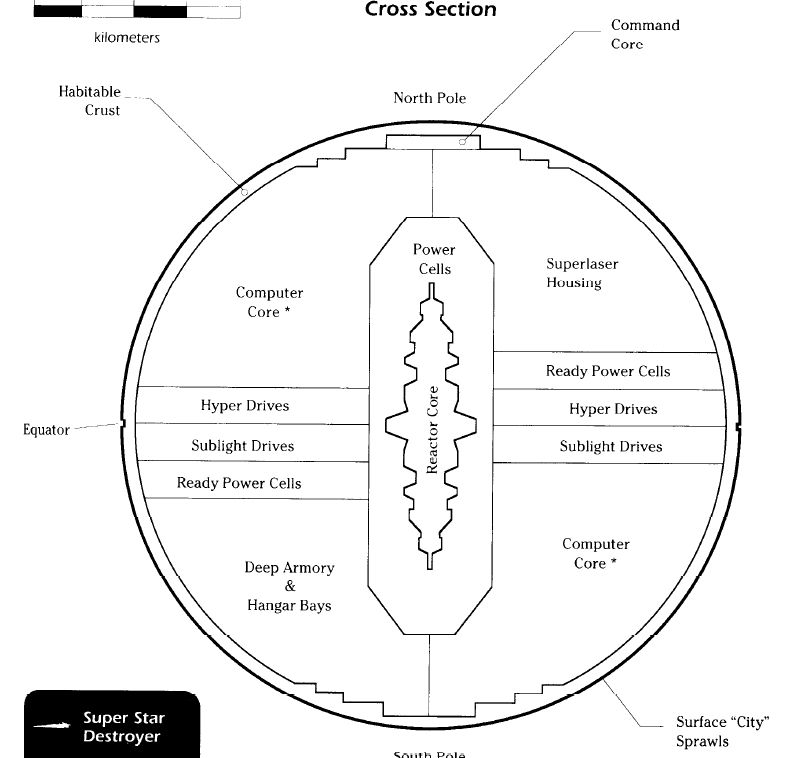It depends on what level of canon you are looking for.
If you accept the Gaming books, the Death Star Technical Companion (at least one of them, I believe there were several) lists it as having both Ion drives and a series of 123 hyper-drive field generators. See chapter two, Technical Specifications.
 (Image from the Death Star Technical Companion, 1st edition, published by West End Games.)
(Image from the Death Star Technical Companion, 1st edition, published by West End Games.)
Given that the reactor was deep inside, we could well have been seeing the ports the Ion drives used, and never realized it. In most space vehicles that we see, the source of the propulsion is visible as it's close to where it's being emitted, and we see the burning / glow / whatever -- In the Death Star, the Reactor was deep inside. I believe the Ion output ports were inside that trench along the middle.
The Technical Companion says: "Finally, the surface was riddled with thermal exhaust ports, heat sinks, sublight thrusters, hyperdrive thrusters ... "
(Emphasis mine)
As I recall, there is also more on this in the expanded universe; the Death Star that we eventually see was the result of a fairly substantial evolution.
One thing to remember, though; the Death Star was HUGE. If you look at the picture I included, that Star Destroyer in the corner is to scale, and you may recall those things were huge, themselves. The Death Star was the size of a small moon; the thrust ports could be easily visible on the surface, and we still might not see them, as most shots of the Death Star show a larger portion of it's surface -- If there are a few hundred of them, and they are each say 500 meters square, we'd never notice them.
